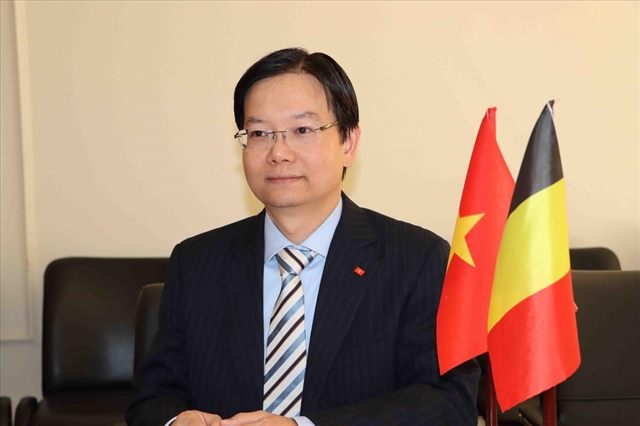 Economy
Economy


|
| Customers holding accounts/cards at VietinBank can pay taxes electronically via the eTax Mobile application of the Department of Taxation. — Photo Vietnamplus.vn |
HÀ NỘI — The Ministry of Finance will pilot the implementation of electronic tax payments through intermediary payment service providers (PSPs) under a newly issued circular, which governs electronic transactions in the field of taxation related to exports, imports, goods in transit, and vehicles entering, exiting, or transiting through Việt Nam.
The move is expected to offer greater convenience and more payment options for taxpayers, while supporting the cashless payment scheme under the direction of the Prime Minister.
Circular No. 51/2025/TT-BTC also provides a legal foundation for further expanding electronic tax payments via PSPs. It allows customs authorities to use State budget payment information transmitted by these intermediaries through the Customs e-Payment Portal to record transactions, deduct outstanding debts, and confirm the completion of taxpayers’ obligations.
The issuance of the circular is considered a necessary step, grounded in practical needs, to promote the modernisation of customs management and facilitate services provided by intermediary payment firms.
Under the new regulation, intermediary PSPs are required to proactively prepare technical infrastructure and submit documentation in line with publicly available standards on the Customs Portal, once they file a request for system connectivity. This is expected to significantly reduce the time and costs associated with registration, compared to previous procedures outlined in Circular No. 184/2015/TT-BTC.
For taxpayers, the circular stipulates that they can carry out electronic tax transactions through multiple channels, such as banking apps, applications of intermediary service providers, or directly via the Customs e-Transaction Portal. This enhances convenience and improves the user experience when making payments for taxes and customs fees to the State budget.
Moreover, taxpayers will be able to fulfil their tax obligations in real time, receive timely notifications of any arising liabilities, and conveniently pay taxes and fees anytime, anywhere, via any internet-connected device.
They can also initiate payment orders regardless of commercial banks’ operating hours, helping reduce clearance times, cut costs, and enhance flexibility and proactivity in customs procedures. This, in turn, improves taxpayer satisfaction and contributes to increased State revenue.
For customs agencies, the circular improves the electronic tax payment process for import and export goods, promotes the use of cashless payment services, and streamlines administrative procedures. — VNS




